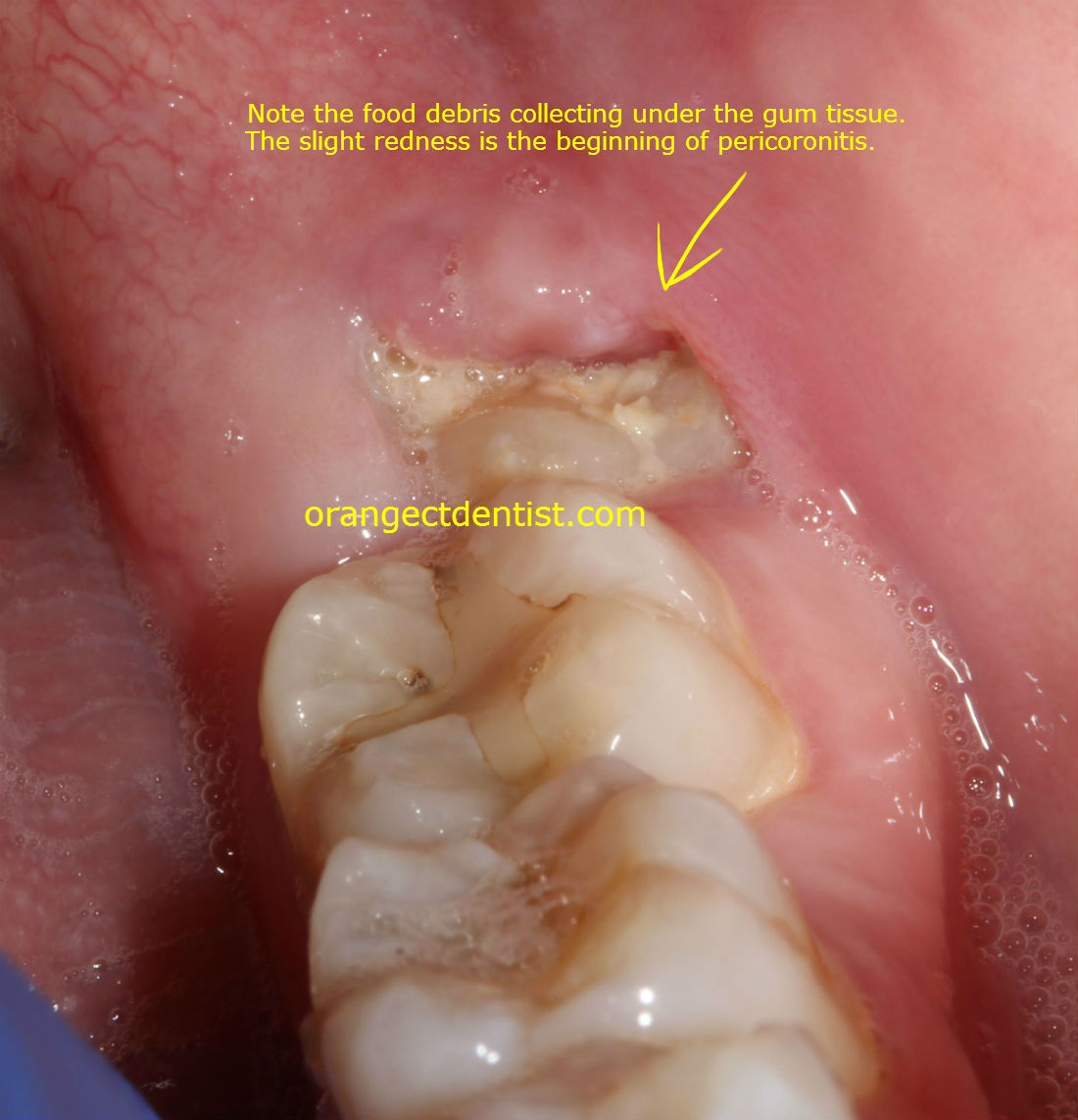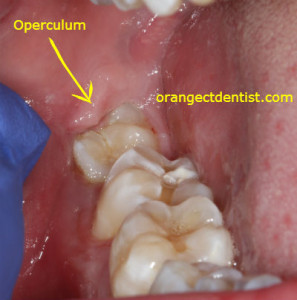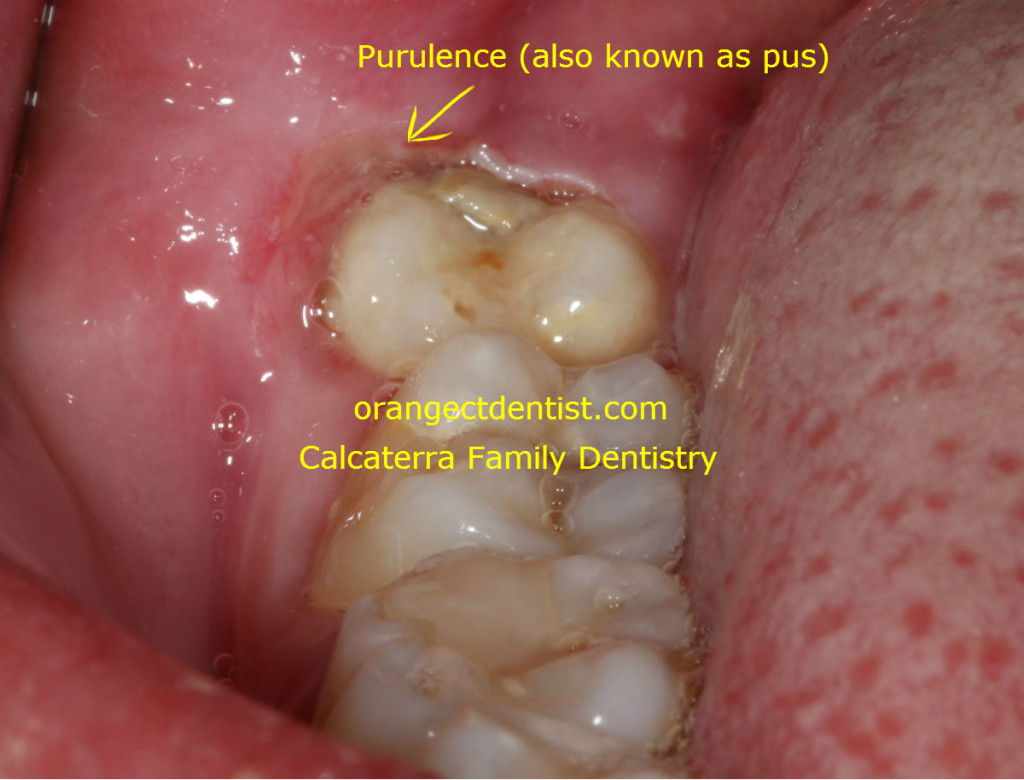Pericoronitis is a painful and potentially serious infection of the gum tissue. It is most often seen when food debris becomes trapped under the gums of a partially erupted tooth, most often a wisdom tooth. If untreated, it can progress quite rapidly and can require hospitalization. It is sometimes misspelled as pericornitis.
Photograph of Pericoronitis

Early stage pericoronitis of a lower left wisdom tooth on a patient from West Haven, CT. She had the tooth extracted by Dr. Nicholas Calcaterra. Photo and case by Dr. Calcaterra.
The above high quality photograph shows early stage pericoronitis of a lower left wisdom tooth (also called third molar) on a patient from West Haven, CT. You can see food debris on the last tooth as well as slight redness and inflammation of the gum tissue. She also complained of pain in that area. Dr. Calcaterra prescribed antibiotics and extracted the wisdom tooth in our office in Orange, CT.
Causes of Pericoronitis
First, let’s look at what the word means:
peri- means “around” or “about”
coron refers to the word “crown” (as in the coronation of a king or queen); the crown is the top half of a tooth.
-itis means inflammation of tissue.
Putting it all togther, pericoronitis means inflammation of the tissue surrounding the crown a tooth.

Operculum over a lower right wisdom tooth.
So how does it occur?
- A tooth slowly come into the mouth. As it is coming in, it is partially covered in gum tissue. That gum tissue has a special name: it is called an operculum.
- For lower wisdom teeth, there is usually insufficient space for the tooth to come in completely. As a result, the tooth gets stuck halfway in and can’t come in any further.
- Food debris gets trapped underneath the gums, despite the patients’ best efforts to keep it clean.
- The food collects bacteria, the bacteria multiply, leading to an infection. The infection leads to inflammation and pain.
Another Picture of Pericoronitis
Here is another photograph of a patient with acute pericoronitis:

Acute pericoronitis with a lower wisdom tooth on a patient from Woodbridge, CT. The patient had this tooth removed. Oral Surgery and photo by Dr. Nicholas Calcaterra.
Treatment of Pericoronitis
Treatment will vary depending upon the severity and the progress of the infection. But in most cases, the sequence is:
- Antibiotics for at least 48 hours.
- Extraction of the offending tooth either with local anesthesia or with IV sedation.
We have treated hundreds of these cases in our dental office in Orange, CT. If you suspect you have pericoronitis, you should contact your dentist ASAP!
